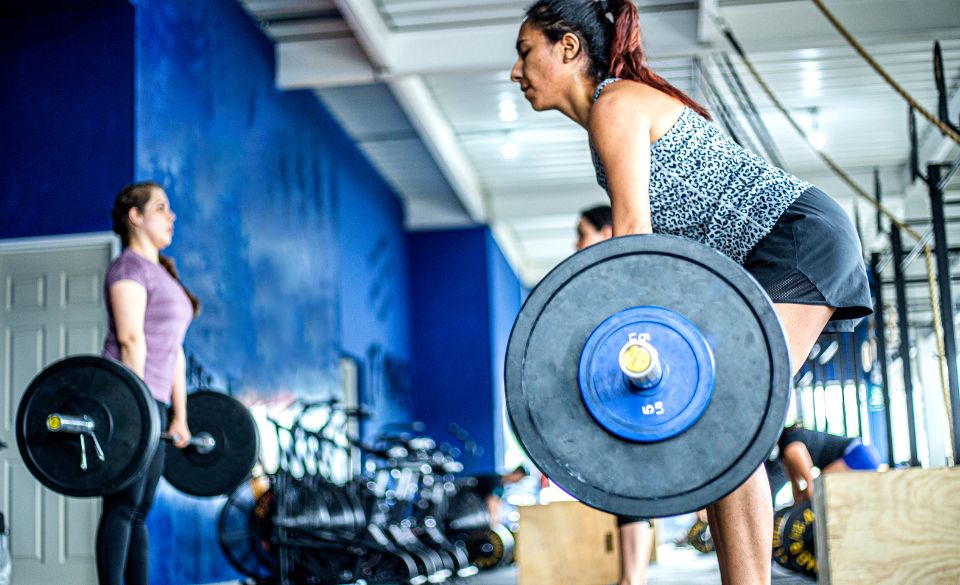
How Much Weight Should I Lift for My Size?
Page Contents
Have you ever wondered how much weight you should be lifting during your workouts, taking into account your size? It’s a common question that many of us have when we step into the weight room. Finding the right weight to lift is crucial for achieving our fitness goals and ensuring we’re challenging ourselves appropriately. In this article, we’ll explore the correlation between weights and size, and provide some guidance on how to determine the ideal weight for your individual needs.
The Correlation Between Weights and Size
When it comes to weightlifting, size alone doesn’t determine how much weight you should lift. There are various factors that come into play, such as your strength level, body composition, and goals. While individuals with larger frames or more muscle mass may naturally be able to handle heavier weights, it’s important to remember that everyone’s journey is unique. What matters most is finding the weight that challenges you personally and allows for progress over time.
How Much Weight Should I Lift for My Size?
Determining the appropriate weight for your size involves considering a few key factors. First and foremost, your current strength level plays a significant role. If you’re new to weightlifting or have limited experience, it’s essential to start with lighter weights to build a solid foundation. Gradually increase the weight as you become more comfortable and your muscles grow stronger.
Another aspect to consider is your body’s feedback. Listen to your body during and after each exercise. If you find that you’re able to complete your sets and repetitions with ease, it may be an indication that you can handle a heavier weight. On the other hand, if you’re struggling to maintain proper form or experiencing joint pain, it’s a clear sign that the weight is too heavy for you at the moment. Always prioritize safety and choose a weight that challenges you without compromising your technique.
Average Weight Per Size
While there is no definitive weight range for each specific size, it can be helpful to look at average weight ranges as a general guideline. However, keep in mind that these numbers are just reference points and should not be seen as strict rules. Your individual strength and goals may vary. For example, an average weight range for a woman who is 5’5″ tall can be anywhere from 120 to 150 pounds. However, it’s essential to remember that weightlifting is not solely about the number on the scale but rather about building strength and improving overall fitness.
Starting Weights for Beginners
If you’re a beginner, it’s important to start with weights that are manageable for your current fitness level. Begin with lighter weights that allow you to perform exercises with proper form and technique. This approach not only helps prevent injuries but also allows your muscles, joints, and connective tissues to adapt and grow stronger over time. Focus on mastering the movements and gradually increase the weight as you gain confidence and experience.
In conclusion, the question of how much weight to lift for your size depends on various factors such as strength level, body feedback, and individual goals. While size may play a role, it’s not the sole determinant. Focus on your own progress and listen to your body’s signals. Start with weights that are suitable for your current fitness level and gradually progress as you become stronger. Remember, safety and technique should always be prioritized over the numbers. With consistency, determination, and the right weight for you, you’ll be well on your way to achieving your fitness goals.
Final Words
When it comes to determining how much weight you should lift for your size, there is no one-size-fits-all answer. It’s a personalized journey that requires listening to your body, considering your strength level, and focusing on your individual progress. Size alone doesn’t dictate the weight you should be lifting, as factors such as body composition, goals, and overall fitness level come into play.
Remember that weightlifting is about challenging yourself and making progress over time. It’s not about comparing yourself to others or conforming to a specific weight range. Start with weights that allow you to maintain proper form and gradually increase the weight as you become stronger and more comfortable with the exercises.
If you’re unsure about how to determine the appropriate weight for your size or feel overwhelmed by the process, don’t hesitate to seek guidance from a qualified fitness professional or personal trainer. They can provide expert advice, assess your abilities, and help you create a customized training plan that aligns with your goals.
Ultimately, the key is to enjoy the journey and celebrate your own progress. Embrace the challenge of weightlifting, and remember that everyone’s path is different. By finding the right weight for your size and focusing on consistent effort and improvement, you’ll be on your way to reaching new levels of strength and fitness. So go ahead, lift those weights with confidence and determination, and watch yourself grow stronger, both physically and mentally.




